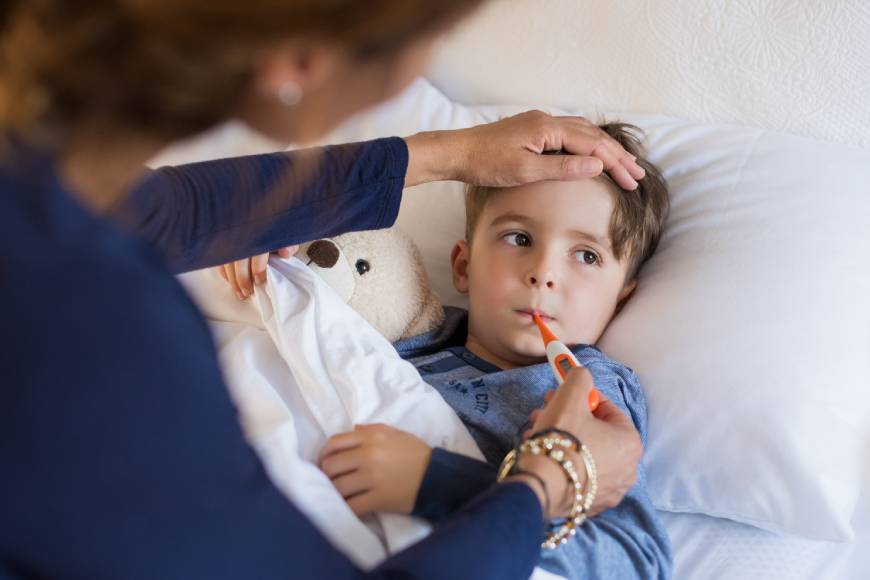When Should You Take Your Child To The Doctor With A Fever?
Fever in children usually shows their body is fighting a minor virus. A paediatrician explains when a fever might be more serious, and what to do.
16 December 2020

All Credits: PA
Fever is very common in young children – according to the NHS, more than 60% of parents with children aged between six months and five years say their child has had one. But that doesn’t make it any less worrying when your child is burning up.
Fever is usually caused by a minor viral infection, such as a cough, cold or a tummy upset, and can normally be treated at home without the need to see a doctor, as most children recover with no problems after a few days.
However, as having a high temperature can also be a sign of something more serious but a lot rarer, such as meningitis, sepsis or pneumonia, it’s understandable that fever in children can really worry parents.
Here, paediatrician Dr Sunil Bhopal of the Royal College of Paediatrics & Child Health (RCPCH) explains what parents need to know about fevers in children:

























.png?itok=SvZPqMHH)




.png?itok=uB2ieOR7)












